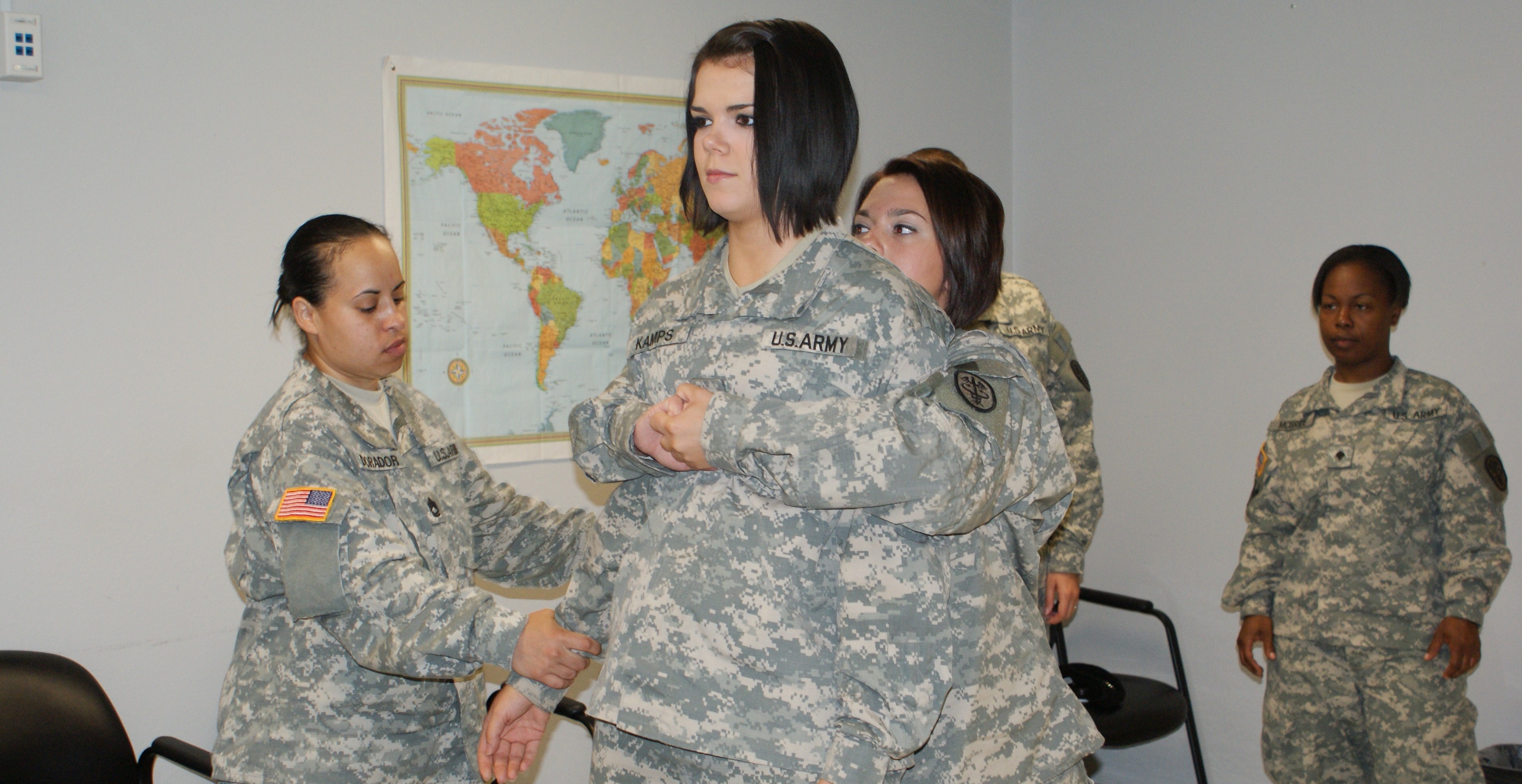
FORT HOOD, Texas -The strength of an Army is based on the physical and behavioral health of its Soldiers and their Families. To ensure the well being of our community and mission readiness, Carl R. Darnall Army Medical Center's Behavioral Health Division offers a diversity of programs and services such as Inpatient and Outpatient Psychiatry, Dept. of Social Work, Resilience and Restoration Center and the Warrior Combat Reset Program.
Sgt. 1st Class Brenda Dorador, the Non-Commissioned Officer in Charge of the Behavioral Health Division, embodies the type of NCO leadership at CRDAMC that ensures the well being of the community.
Born and raised in Ontario, Calif., Dorador, 30, has served the Army honorably for 12 years. After one semester of college, Dorador joined the military in 1997 to learn about the science of behavioral health.
While attending Basic Training at Fort Leonard Wood, Mo. and Advanced Individual Training at Fort Sam Houston, Texas, she gained the skills to become a behavioral health specialist.
"We're a very small military occupation specialty and we're a specialty that's often times overlooked when it comes to training and promotions," said Dorador.
"I believe our MOS is an exceptional MOS; it takes a high caliber individual to be resilient in this MOS," said Dorador. She explains that not everybody has the physical and emotional endurance to remain in this field.
"We have to be more resilient than the average Solider because the average Soldier comes and sees us," said Dorador.
"It's a very interesting field and not many people understand it, but it's one of the main reasons why I joined the military," said Dorador.
"I have a better understanding of how society is functioning and the dynamics of social interaction and individual concepts. That's just interesting to me," Dorador said.
Responsible for administrative duties and management supervision duties for all of CRDAMC behavioral health clinics, Dorador takes pride in her leadership role.
"She's very structured, we are always well informed, she takes a hands-on approach, and doesn't stand back at all. She's very involved with the Soldiers. She makes sure we have all we need for clinical matters and makes sure that we do what we need to do on our military side," said Sgt. Elis McBride, NCOIC of the Triage Clinic at the Resiliency and Restoration Center.
"She's definitely true to the NCO Creed. I always tell her to whom much is given, much is required, and much has been given to her. She does an outstanding job of making sure she meets the requirements, said McBride.
Just as McBride looks to Dorador for mentorship, Dorador looked to her NCOs for mentorship when she was a junior Soldier.
"I would say Master Sgt. Melissa Pisascik and Sgt. 1st Class Ladonna Turner were two great mentors for me because they're a Soldier's Soldier and that's rule number one and two to take care of your Soldier as NCO" Dorador said.
Although most of her days she finds herself covering much ground within CRDAMC, her office walls are well decorated with achievements, awards and many other recognition memorabilia.
"I'm proud to be an NCO and the history of the NCO has a big influence on that feeling," she said.
Describing her leadership style as flexible, Dorador says being available all the time is important.
"The history of the NCO and when I am able to uphold that history is something that is very unique and not everybody gets to do it. It's a huge responsibility, and it makes me proud, especially when I see my subordinates succeed. That is my biggest source of pride," Dorado said.
"The Year of the NCO to me means that people are looking at us more now, but at the same time, it's more positive now than I remember it. It's pretty good. More time should be addressed on needs of the middle managers and what they do day in and day out because that's what keeps all the wheels turning all the time," said Dorador.

Social Sharing